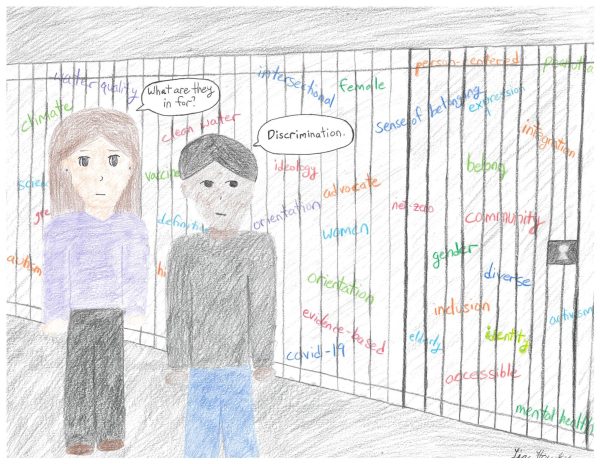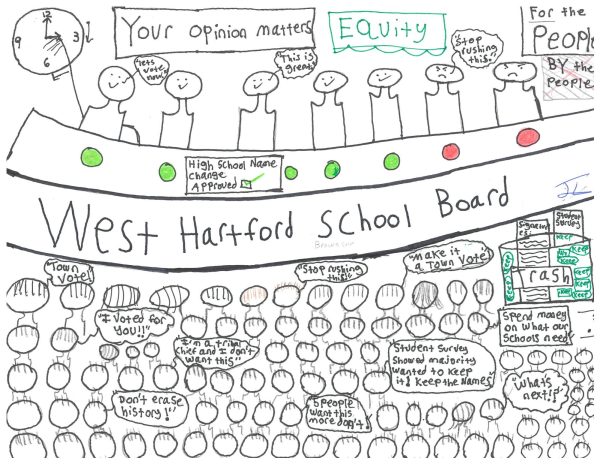Helping or Harming: The Authoritarian Parenting Style
The balance between being a parent and a friend is extremely difficult. Could making the rules for your child turn them against you or cause them to rebel? In most cases, yes.
Typically, it begins in the household. According to Jacquelynne Eccles, a professor of psychology and education at the University of Michigan, Children begin to establish their identity between the ages of 6 to 14, doing this while surrounded by harsh rules and regulations can cause a child to rebel (Eccles 199). Teenagers with authoritarian parents, find their opinions frequently disregarded and their point of view ignored. This causes kids to act out in an attempt to be noticed. Authoritarian parents demonstrate a lot of discipline and little to no warmth (Mann 2012). When considering all three parenting styles, permissive, authoritative and authoritarian, authoritarian parenting style has been known to drive children to have a rebellious nature.
While talking to Dr. Boucher, a Psychology teacher at Hall, we gained a better understanding of the differences between parenting styles. Boucher described the authoritarian method as “tight and unwavering,” he explains, when parents use this method their kids “tend to develop less agency and they push harder against the rules.” While setting rules for your children are important, there should be a balance.
Dr. Boucher, having taught thousands of kids, has a unique perspective on the situation. He has seen kids with strict parents act out in many ways such as cheating, smoking, drinking, drugs, and sex (specifically against rigid cultural expectations). Experiencing this first hand with some of his students showed him the harder lines parents draw for their children the more they will try to separate from their parents when establishing their individualism, this results in the relationship between a strict parent and a rebellious child.
During our interview, Boucher brought up some interesting points. Rules can only be broken if they’re first set in place. Teenagers are bound to experiment when they’re trying to individuate and depend on their parents less. It can seem as though a child with strict parents break the rules more often than a child with a permissive parent is not breaking any. But, it could only seem this way as rules were never set in the first place. In both cases, the rebellion is due to attention-seeking in Dr. Boucher’s opinion. He explains, it is difficult as a parent to strike a balance in parenting that can prevent raising a rebellious child and he views his parenting style as, “on a good day authoritative, on a bad day it’s authoritarian and it’s never permissive.”
An authoritarian parenting style can cause kids to feel like they can’t learn their lessons or have their own experiences. Sami Farber, a senior at Hall says, “I think when parents try to make a lot of rules and not let their kids make mistakes on their own they end up doing worse things than kids who don’t have any rules at all…” The lack of conversation about rules and regulations between an authoritarian parent and their child can create a hostile environment. This parenting style is known for a lack of warmth which doesn’t facilitate honesty.
Melissa Weinstock, the parent of a senior at Hall, agrees that strict or authoritarian parenting can lead to rebellion. She says “Sometimes very strict rules drive children to lie and go in the other direction.” Weinstock strives to put her emphasis on trust to ensure that she knows what is going on in her child’s life and that they are safe. Enforcing so many rules that many can be easily broken will force a child to lie. Authoritarian parents are at risk of never knowing what is truly going on in their child’s life. Sami Farber, a senior at Hall says, “I’ll say I’m going one place and I will go there but it may not be what [my parents] think is going on.”
Parents need to acknowledge the potential harm they are causing their children by harshly disciplining them. As they restrict their children from having a voice when important decisions are made, they are also restricting their ability to individuate and make mistakes. Dannis Mann, a practicing Family Medicine doctor in Arlington, WA, concludes, “The best approach, from my perspective, is to be an authoritative parent. This means having discipline and standards for behavior and also showing warmth and also being receptive to a child’s needs.” (Mann 2012)








Tali Raichelson • Nov 7, 2019 at 1:48 pm
I really love your title! You have a lot of good sources. Also, this article definitely has a real world application because everyone can relate to their own parenting style to how they were raised.